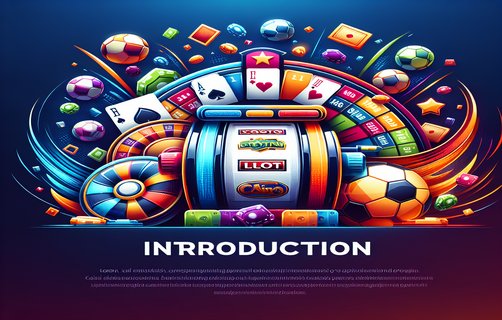The Evolution of Gambling: From Traditional Betting to High-Tech Gaming
In recent years, the world of gambling has undergone a seismic shift, propelled by technological advancements and changing consumer preferences. As traditional forms of gambling meet innovative gaming experiences, players find themselves navigating a multi-faceted landscape where options are as diverse as they are exciting. This article delves into various aspects of contemporary gambling, including the exploitation of fish in astute betting strategies, the allure of high-stakes games like Mega Fortune, the complexities of sports betting, the unpredictability of high volatility, the emergence of augmented reality games, and the essential role of mathematical skills—all while advocating for responsible gambling initiatives.
Exploiting Fish refers to a common strategy in gambling, particularly in poker, where seasoned players take advantage of those with less experience or understanding of the game. This term not only applies to poker tables but also resonates within broader gambling spheres, such as online casinos and sports betting platforms. The ongoing participation of "fish" sustains the ecosystem of gambling, as they inject money and excitement into various betting statutes. However, this raises questions about ethics in gambling—how can one partake in a game that thrives on the exploitation of less-skilled players? It brings to light the importance of education, transparency, and conscious gaming, steering the conversation toward responsible gambling initiatives that prioritize player welfare over profit.
In the world of progressive slots, Mega Fortune stands out as a quintessential example of high-stakes gambling, providing players a chance to win life-changing sums of money. While entertaining, it also embodies the paradox of gambling: the more players engage, the more they chase the elusive jackpot, which often remains tantalizingly out of reach. This perpetual chase for windfalls can lead to problematic gambling behaviors—an issue that cannot be ignored in discussions surrounding modern gaming. Awareness and education about the probabilistic nature of such games are urgent needs in this context, making responsible gambling initiatives imperative for the industry.
Sports betting is another arena that showcases the blending of traditional gambling practices with modern technology. Here, the stakes often hinge on not just instinct or luck but also on extensive research and analysis. The availability of data has transformed how people engage with sports betting—allowing punters to employ sophisticated strategies, calculations, and the application of their mathematical skills. However, this brings us back to the concern of inequality: those who lack the resources or knowledge may find themselves overshadowed by savvy gamblers. Thus, responsible gambling initiatives must account for the asymmetry of information, creating educational programs that empower all players to bet wisely and fairly.

The term high volatility evokes a sense of unpredictability that resonates with many aspects of gambling. High volatility games may offer larger payouts but at a riskier frequency, echoing the high stakes of contemporary gambling practices. This reality can lead to increased emotional highs and lows for players, further complicating the psychology of gambling. Understanding these concepts is crucial for promoting responsible behaviors. Adopting well-informed betting strategies can mitigate some of the risks, ensuring that players are not merely victims of chance but rather participants in a game of skill.

The advent of augmented reality games marks a paradigm shift in the gambling experience, bringing players closer to an immersive environment that blends reality with the virtual realm. Enhanced by this technology, players can engage with games like never before—interacting with 3D environments and receiving real-time feedback. However, with such innovation comes the pressing responsibility to assess the psychological and emotional impacts of these experiences. It is crucial to integrate responsible gambling measures into these platforms, ensuring players have tools to maintain a balanced approach, lest they fall into the pitfalls of excessive gaming.
The convergence of these elements—exploiting fish, the thrill of games like Mega Fortune, the intricacies of sports betting, the nature of high volatility, and technology-driven innovations—paints a complex picture of modern gambling. Central to all these discussions is the imperative of responsible gambling initiatives. An industry that embraces ethical standards and prioritizes the well-being of its players stands a better chance of thriving in the long run. As the gambling landscape continues to evolve, players must remain aware and educated, ensuring that their engagement remains a source of entertainment rather than a detriment to their well-being.
